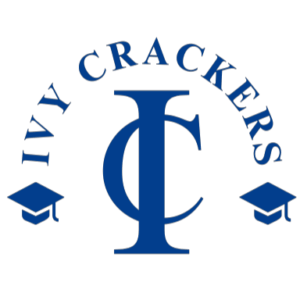From Classroom to Career: Navigating the Shifting Sands of STEM Education
As we move forward into the future, the world continues to undergo rapid changes brought about by new technologies and discoveries. This has led to an increased demand for competent and knowledgeable professionals in the fields of Science, Technology, Engineering, and Mathematics (STEM). Consequently, schools and institutions of higher learning have had to adapt and modernize their STEM curriculums to meet this ever-growing demand.
With the developments in teaching, learning, and scientific research, educational institutions have had to take on innovative approaches to attract and retain the brightest minds and ensure the future growth of the STEM industries.

In this blog post, we will explore the latest trends and emerging strategies in STEM education recruitment and enrollment, so that you can stay current with what’s happening in this ever-evolving field and provide the best resources to budding professionals.
- Interdisciplinary Programs: As our world continues to become more connected and complex, traditional boundaries between different fields of study are becoming blurred. In response, some universities are now offering interdisciplinary STEM (Science, Technology, Engineering, and Math) programs that allow students to gain a comprehensive understanding of how different fields collaborate to solve various problems. These interdisciplinary programs, such as one that combines computer science and biology, not only provide an excellent learning opportunity but also pave the way for innovative and groundbreaking research. By bridging the gap between seemingly unrelated fields, students in these programs are given a unique perspective that enables them to approach problems and ideas in new and exciting ways. Ultimately, interdisciplinary STEM programs equip students with not only the technical skills they need to solve complex problems but also the critical thinking and problem-solving abilities required for them to lead as they navigate various fields and industries.
- Project-Based Learning: Undoubtedly, hands-on experience holds a significant weightage when we talk about the quality of education. It provides an opportunity for students to practically implement the theoretical knowledge that they have gained. Project-based learning is an educational approach that is gaining increasing popularity in the field of science, technology, engineering, and mathematics (STEM). This pedagogical technique allows students to apply their theoretical knowledge to real-world situations which they are likely to face in their professional lives. Moreover, universities and other educational institutions are now recognizing the importance of hands-on experience in the STEM fields and are incorporating programs that provide students with practical experience. This includes internships, research projects, and industry collaborations, where students can interact with professionals from related fields and learn the challenges and excitement they will face in their future careers. With the growing demand for STEM professionals, these programs play a critical role in preparing students for the industry and enabling them to gain the experience they need to excel in their careers.
- Integration of Emerging Technologies: From engineering to computer science, the innovations that are coming out of these disciplines are rapidly changing the way we live, work, and communicate. To ensure that the next generation of learners will be prepared to navigate this exciting landscape, more and more schools are incorporating emerging technologies into their curricula. One of the most promising aspects of this trend is the incorporation of technological advancements like artificial intelligence, machine learning, and virtual reality into STEM education. By engaging with these cutting-edge technologies, students not only gain invaluable skills that will help them succeed in today’s job market but also have the opportunity to explore creative solutions to complex problems.
- Diversity and Inclusion Initiatives: As we move towards a more interconnected and globalized world, the significance of diversity and inclusion in STEM fields is becoming increasingly profound. From varied cultural beliefs to unique life experiences and skill sets, a diverse pool of individuals can offer a plethora of perspectives that stimulate innovation and progress within the field. Hence, educational institutions are proactively implementing initiatives aimed at attracting students from underrepresented backgrounds into these fields. To this end, scholarships and mentorship programs are being established to create an enabling environment for a diverse group of students to thrive and achieve their goals. Not only does this approach help remove barriers for entry, but it also provides mentorship opportunities, which are vital for students who lack role models from similar backgrounds. In addition, outreach strategies are expanding to create awareness and interest in STEM fields among underrepresented groups.
- Global Collaboration: As we move towards a more interconnected world, it has become increasingly clear that STEM challenges come in all shapes and sizes. What may seem like a local issue may actually have far-reaching global implications. This is why collaboration across borders is extremely important for addressing these challenges. Universities, being at the forefront of STEM education, have been taking up this challenge by establishing partnerships with academic institutions worldwide. These collaborations offer joint programs that foster academic exchange and international research opportunities. They are not only instrumental in enriching the educational experience but also expose students to a myriad of cultural and scientific perspectives. This prepares them to be more well-rounded and adaptable individuals, who are better equipped to face the complex challenges that the world has to offer.
- Flexible Learning Models: With the increasing demand for higher education, educational institutions are recognizing the importance of adapting to the diverse needs of students to provide a more inclusive and accessible learning environment. As a result, there has been a significant shift towards flexible learning models that have the potential to revolutionize the way in which we learn. Hybrid and online STEM programs provide a level of flexibility that is unmatched by traditional classroom-based learning. This accessibility to a broader student population, regardless of geographical location or personal commitments, has opened up new opportunities for learning. It is particularly appealing to non-traditional students such as working adults, parents, and those seeking to upskill or reskill. These programs help students to balance their busy lives with their educational aspirations, providing them with more control over their learning outcomes.
- Entrepreneurship and Innovation Initiatives: It’s no secret that STEM graduates are increasingly looking to make their mark in the entrepreneurial space. As a result, universities are stepping up to the challenge and are integrating innovative entrepreneurship programs into their STEM curricula to meet this growing demand. The objective is to equip students with the knowledge and skills that will help them conquer the challenging journey to bringing their ideas and inventions to market. These programs go beyond mere academic theories, engaging students in practical hands-on activities that challenge their creativity, innovative thinking, and problem-solving skills. By teaching essential concepts like financial modeling, business plan development, and marketing strategies, these programs help students navigate the complexities of business in the competitive technological landscape. With the integration of entrepreneurship and innovation programs into STEM curricula, future graduates have the unique opportunity to acquire skills that not only enrich their academic journey but also prepare them for the real world of business and technology startups.
As new discoveries, emerging technologies, and innovative solutions continue to reshape the world, it is imperative that we prepare the next generation of STEM professionals to succeed in such an environment.
That is why educational institutions need to keep up with the latest trends in STEM education and adapt to them. The aforementioned trends represent a paradigm shift towards more interactive, collaborative, and interdisciplinary approaches to learning, which have proven to be more effective in fostering creativity, critical thinking, and problem-solving skills.
By embracing these trends, educational institutions become enablers, not just purveyors, of knowledge and skills. In doing so, they not only attract top-tier students and faculty but also fulfill their mission to produce STEM graduates who are ready to tackle the challenges of the future.
As new discoveries, emerging technologies, and innovative solutions continue to reshape the world, it is imperative that we prepare the next generation of STEM professionals to succeed in such an environment.
That is why educational institutions need to keep up with the latest trends in STEM education and adapt to them. The aforementioned trends represent a paradigm shift towards more interactive, collaborative, and interdisciplinary approaches to learning, which have proven to be more effective in fostering creativity, critical thinking, and problem-solving skills.
By embracing these trends, educational institutions become enablers, not just purveyors, of knowledge and skills. In doing so, they not only attract top-tier students and faculty but also fulfill their mission to produce STEM graduates who are ready to tackle the challenges of the future.
How can IvyCrackers help you?
When it comes to making informed decisions about a program, there is often no substitute for firsthand knowledge and advice from those who have been through similar experiences. That’s why we, at IvyCrackers, firmly believe that one of the best ways to gain valuable insights about a particular program or university is to interact with current students and alumni of that very university.
Connecting with them can give you a more comprehensive understanding of what it is be part of that university, both in terms of coursework and extracurricular activities, as well as the kind of career options that may be available after graduation. Our “Mentor Session” initiative is designed to help facilitate these connections by pairing you with members of our community who can share their personal experiences and perspectives with you.

Our team of experts, at IvyCrackers, has been passionately dedicated to helping countless candidates achieve their academic and professional goals. We have worked tirelessly to provide comprehensive services that are tailored to your specific needs, including refining your application essays, conducting mock interviews, perfecting your resumes, and strengthening your profiles. Our commitment to excellence is reflected in the success stories we have helped create, with our clients consistently achieving remarkable feats in their chosen fields.
We believe that everyone has the potential to excel, and we are here to help you unlock that potential. So why not head over to our ‘Services‘ section now and discover how we can help you fulfill your dreams today?
Visit our Youtube Channel, Linkedin or Instagram Page for regular updates!



